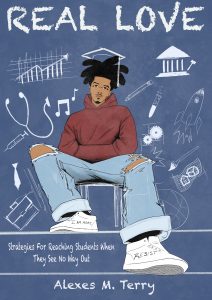I remember it was my third year teaching and I had just received my Master’s Degree in Sociology with an emphasis on race studies. I was tasked with teaching Dual Credit Sociology to high schoolers. Those who may only have a superficial understanding of sociology might benefit from understanding sociology is basically a landmine of controversial topics including but not limited to the big three no no’s: Race, Religion, and Money (or socioeconomic status). I remember sitting at my laptop over the summer trying to develop politically correct slides discussing racial inequality and racism. I’m a Hispanic/caucasian teacher teaching one of the most difficult topics to discuss in America…WITH TEENAGERS. I asked myself “If this was my kid how would I want their teacher to approach this topic?” I stopped making a slide show and instead I started writing a letter.
“Dear parents, this year your dual credit student is enrolled in my sociology course. I would like to make you aware of the course content and some of the topics that will be discussed so you can make an educated decision regarding your child’s instruction.” Then I outlined the hard topics: Race, Religion, Sexual Identity, Socioeconomic Status, Politics. Then I ended with “It is my belief that your child being of a college-level mentality is more than capable of navigating this content. It is not my intention to persuade your child’s views but I am also aware we all come into our experiences with our own perspectives. If you would rather your child not take the course then I advise you to speak to the counselor and have your student’s schedule changed. If you choose to allow your child to remain in the course, I would like you to make this an opportunity for open dialogue with your children that otherwise might not easily be discussed. It is my true goal to teach your children how to talk openly and reasonably about hard topics regardless of their position or view.” In 7 years, (14 semesters) only one parent changed their schedule. Now I am back in healthcare. I am a hospice nurse. If there was ever a more difficult hard topic than race it could only be death. I’d like to share three key ideas regarding teaching and discussing the hard topics from someone who knows exactly how difficult hard topics can be.
1. Hard topics are necessary and they are a part of your job, teachers shouldn’t shy away from hard topics. However, we are still living in a time where the generation before didn’t discuss them because it was rude. “Don’t discuss religion, money, and politics” my mom would say. So as teachers we have to remember not everyone is comfortable with discussing these hard topics. Don’t force it. The best way to gain the support of your parent population is to be upfront about why the topics are pertinent to the curriculum. Invite them to discuss the content with their child and acknowledge that regardless of how much you might disagree they do have a right to their views. Teaching these concepts is in fact a part of your job though. Consider that this child sits in a school for 8 hours a day 5 days a week for approximately nine months a year. If you aren’t teaching the hard topics who is…their best friend? The same best friend you just saw spit out milk through his nose in the cafeteria? Please for the love of God!!! Do not leave the future of our society to the milk boy.
2. Hard topics are important for the future success of your student. There is a lack of ability in our country to engage in even the most basic discourse. Put two kids in a room and ask what kind of ice cream they like and give it time, there will be an argument. But where in education do they teach discourse? A Socratic seminar? Oh yes…The Socratic seminar where kids take well-organized turns with assigned roles and stick to carefully worded prompts devised to create the most superficial version of world discourse possible. Then we send kids out into the REAL world and say “listen to the other side” and “express yourself rationally” but they no longer see a talking stick and there’s no inner circle or outer circle. Real discussions about hard topics include unease, discomfort, uncertainty, and sometimes yes…even a few mistakes in order to be truly effective, but if we are going to make better world citizens we have to learn to navigate the discomfort. Your students will go out into the world and be expected to know how to navigate hard topics. If we have not taught them how then we have done them a disservice.
3. The most important thing you can do before you discuss a hard topic is to teach yourself. There’s no way you can have a hard conversation or lead a hard conversation until you know where you stand on the hard conversations and why. Now I’m not saying everyone should have a Master’s Degree, but you can’t be a history teacher teaching about the Transatlantic Slave Trade and all you have to base your teaching on is the history book in front of you. You have to do your research and explore the hard topic on both sides. Learn how to identify the line between discomfort and offensive and not just offensive to you but offensive to the children you teach. Open yourself to views that are not your own. Be the teacher that makes hard topics comfortable places where kids can express their views and learn how to express them to others. On the inside, I’ve disagreed with countless views expressed in my room. Most times my response is simple. “Tell me why you think this way. I’m not saying that you have to agree with me. I’m saying you haven’t provided an adequate enough argument to defend your position. Go research and come back. Let’s talk more.” There have also been times when a well-versed kid could defend their view (and well) then my response was just as simple “Although I am not of the same opinion I commend you for supporting your views with data and legitimate research.”
This school year I implore you to become uncomfortable. Find a way to have a hard topic discussion. Your students will be better for it and just maybe so will you. We can learn just as much from this generation of iPhone, Instagram obsessed, Gen Z kids as they can from us 80s music-loving, Aqua Net spraying, Gen X teachers, but only if we are willing to step outside of our comfort zone. Keep in mind the importance of including the parents, the children, and yourself. Teach compassion and respect. Show them that hard topics like race can be discussed and everyone walks away better. The only way we will bridge the divides in our society is by learning to talk about them.
Wendy Jackson, RN, MS
Wendy Jackson holds a graduate degree in Sociology and Philosophy. She is a wife, mother to three daughters. Former teacher and current hospice nurse and self-proclaimed hard topics expert.



